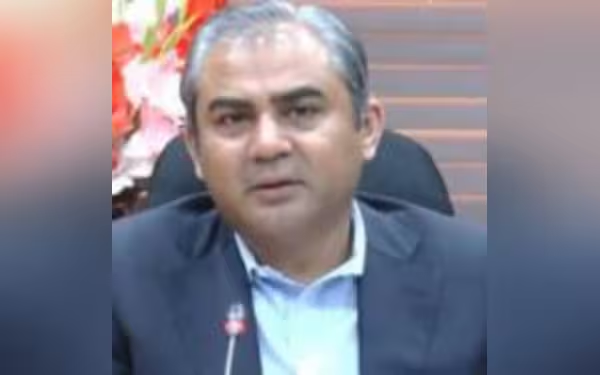Friday, November 8, 2024 05:49 AM
Govt Rejects PTM's Jirga Plans, Asserts Lawful Authority
- Govt prohibits PTM from establishing parallel court.
- Khyber Pakhtunkhwa police dismantle PTM camp amid tensions.
- Human Rights Commission raises concerns over violence.
 Image Credits: pakistantoday
Image Credits: pakistantodayInterior Minister Naqvi declares PTM's jirga plans unlawful, emphasizing government authority amid rising tensions.
In a significant development regarding the ongoing tensions between the government and the Pashtun Tahafuz Movement (PTM), Interior Minister Mohsin Naqvi has firmly stated that the government will not permit the establishment of a parallel court disguised as a jirga. This declaration comes amidst rising concerns over the PTM's activities, which the government has labeled as divisive and unlawful.
The PTM, a movement advocating for the rights of the Pashtun community, has been under scrutiny for its alleged actions that include verbal assaults against the state and police. The government has taken a strong stance against these actions, asserting that they promote ethnic discrimination and threaten national unity. Naqvi emphasized that while traditional jirgas, which involve tribal elders, are acceptable, the format proposed by the PTM does not align with these historical practices. He stated, "A jirga involves the tribal elders, while on the contrary, bringing in thousands of people does not constitute a Jirga as it’s something else entirely."
As the PTM prepares for a grand jirga scheduled for October 11 in Khyber district, tensions have escalated. Activists have gathered in defiance of government orders, vowing to proceed with their plans. The situation intensified when the PTM alleged that three of its supporters were killed due to police action, which they claim was unjustified. Awami National Party (ANP) MPA Nisar Baaz criticized the police's response, stating that the actions taken were a direct order from the Khyber Pakhtunkhwa government.
In response to the PTM's activities, the Khyber Pakhtunkhwa police dismantled a camp set up for the Pashtoon Qaumi Jirga, leading to several arrests and the suspension of internet services in the area. The district administration has imposed Section 144, prohibiting gatherings in the district for 30 days. This move is part of a broader strategy by the government to curb the PTM's influence and maintain public order.
Furthermore, the government has issued a notification barring provincial officials from engaging with the PTM, labeling the organization as unlawful under the Anti-Terrorism Act. The notification warns that any participation in PTM activities could lead to legal consequences, emphasizing that the PTM poses a "significant danger" to public safety.
As the situation unfolds, the Human Rights Commission of Pakistan has expressed concern over the violence reported in Khyber, advocating for the protection of unarmed protesters. The ongoing conflict highlights the delicate balance between maintaining law and order and addressing the legitimate grievances of marginalized communities.
The government's firm stance against the PTM reflects a broader struggle over the rights of ethnic groups in Pakistan. While the PTM seeks to advocate for its community, the government's actions raise questions about the limits of free expression and the right to assemble. As both sides navigate this complex landscape, it is crucial for dialogue to continue, ensuring that the voices of all citizens are heard and respected in the pursuit of peace and justice.













